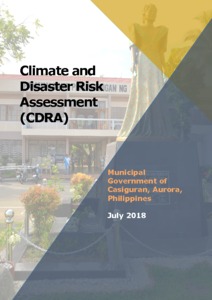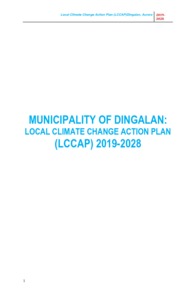The Philippines is among the countries most at risk to climatic threats and weather-related loss events. The project site is proposed in the Province of Aurora which faces the Pacific Ocean and has no barriers to shield it from typhoons coming from the east. The Province of Aurora being a coastal community, (1) it is perceived to be highly vulnerable to sea-level rise and coastal flooding; and (2) people’s livelihood (farming, fishing and tourism) is highly dependent on natural resources, which are already being adversely affected by climate change, thereby exacerbating the poverty situation in the area. Climate change adaptation has gained significant attention in the recent years with the Dr impacts of changing the climate, including variability and extreme weather events that were experienced in different parts of the world. The demands for adaptation have become immensely apparent especially with the current and predicted environmental risks. The project will build the facilitation and implementation capacity of the 8 municipalities and 1 Provincial LGUs of Aurora to design and implement its landscape-based LCCAP. The capability-building activities will utilise the landscape approach characterised by multifunctionality, transdisciplinarity, participation, complexity and sustainability while focusing on LGU responsiveness, resourcefulness and capacity to learn. The landscape is applied in this project in the context of a “complex socio-ecological system, usually made up of a mosaic of different land uses”. The project follows a “landscape approach” which means taking both a geographical and socio-economic approach to managing the land, water and forest resources that are the basic components of natural resource management. It is based on the premise that this integrative approach maximises productivity, improves livelihood and reduces negative impacts. Landscape approach also matches the resilience thinking.
Project leader
Project publications
Enhancing resilience through capacity building in LCCAP formulation in the local government of Aurora, Philippines
Building institutional resilience in the context of climate change in Aurora, Philippines

Project Final Report: CBA2017-03MY-Pulhin

Technical and Policy Forum on CDRA and LCCAP

Climate and Disaster Risk Assessment








